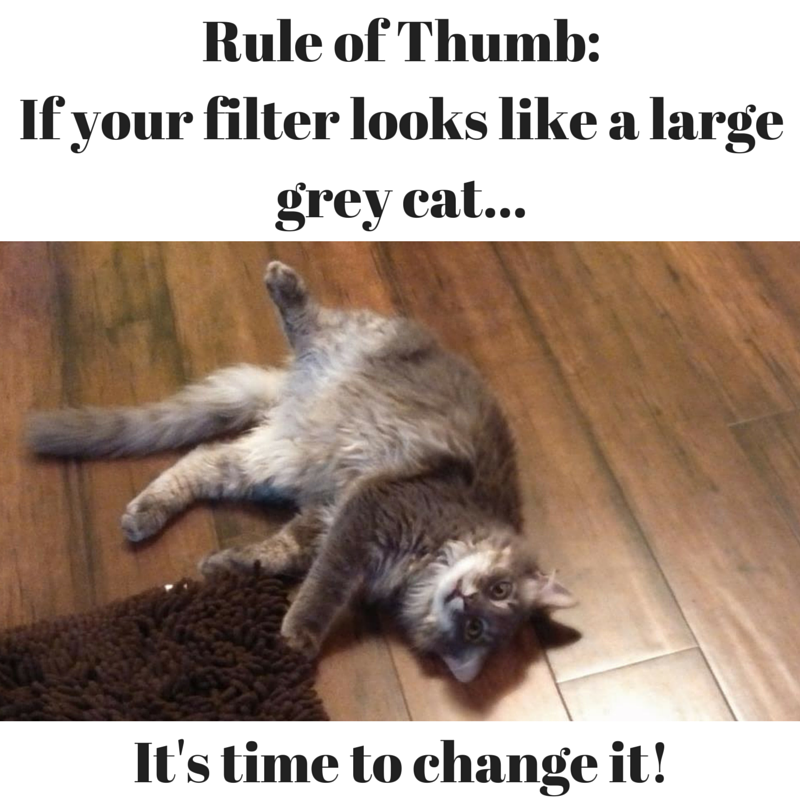Filters are VERY important. Dirty filters responsible for a ridiculously high volume of totally avoidable service calls. They restrict airflow and cause unit damage if left clogged long enough. So, please don’t ignore your filters. They should be changed at least once per year, twice if the system runs year-round, and more if you’re using pleated filters. The rule of thumb is, change it when it’s dirty. Filters are important, but filters are only half the battle.

Though there are some basic maintenance tasks that can be done on a DIY basis, like filter changes, or if done carefully, coil cleaning, it’s a good idea to use a professional HVAC technician at least once before each season (heating and cooling) to fully test unit operations. Your heating, cooling and refrigeration equipment is complex. Even more complex today than at any time in the past, and you can bet that in the future, they will be more complex even still! It’s entirely possible that someday your HVACR unit will become self aware and try to take over your building a la The Terminator. (LOL! Not really. I mean, probably not…)
Because of their complexity, a true maintenance plan needs to be about more than just filters and belts. Just to cover the basics:
- Check airflow,
- Check proper refrigerant charge,
- Verify correct electrical voltage & current,
- Confirm safety components are fully-functional,
- Check programs and controls.
If any or all of these items are not up to par, you will not get the performance or the longevity you want out of your equipment, no matter how many times you change the filters.
In addition to the basics, it should also take into account the manufacturer’s maintenance recommendations for your specific unit, which is in the Installation and Operations Manual (IOM).
Reading the manual is not a sign of ignorance. In today’s HVACR world, it’s an indication that the tech really knows what he’s doing, has good attention to detail and is a true professional.
Not all “HVACR professionals” treat maintenance the same way. If an HVACR contractor is trying to get in the door by selling you a “cheap” maintenance agreement, they’re probably not doing a thorough job. For example, to properly test an AC unit, it should run for at least 20 minutes. Any less and you’re not getting accurate refrigerant pressure readings, which you need to test basic AC operation. So before you blindly take the low bid, make sure you check the labor hours of the maintenance agreement. Even the simplest HVAC unit should take 45 minutes to an hour to fully check, (more if they included coil cleaning). If they figured less time than that, you’re not getting a proper PM. Because if they’re not checking basic AC operation, what else aren’t they checking?
Utilizing a professional to check cooling equipment can protect your HVAC investment (because we know these units aren’t cheap!) and prevent things like damaging water leaks, or embarrassingly sweaty summer meetings, but an experienced eye becomes even more important during the heating season, when a technician can identify and correct dangerous life safety issues that could result in fire, carbon monoxide poisoning, explosion, The Terminator, etc. Check out more benefits of maintenance agreements on our webpage.
